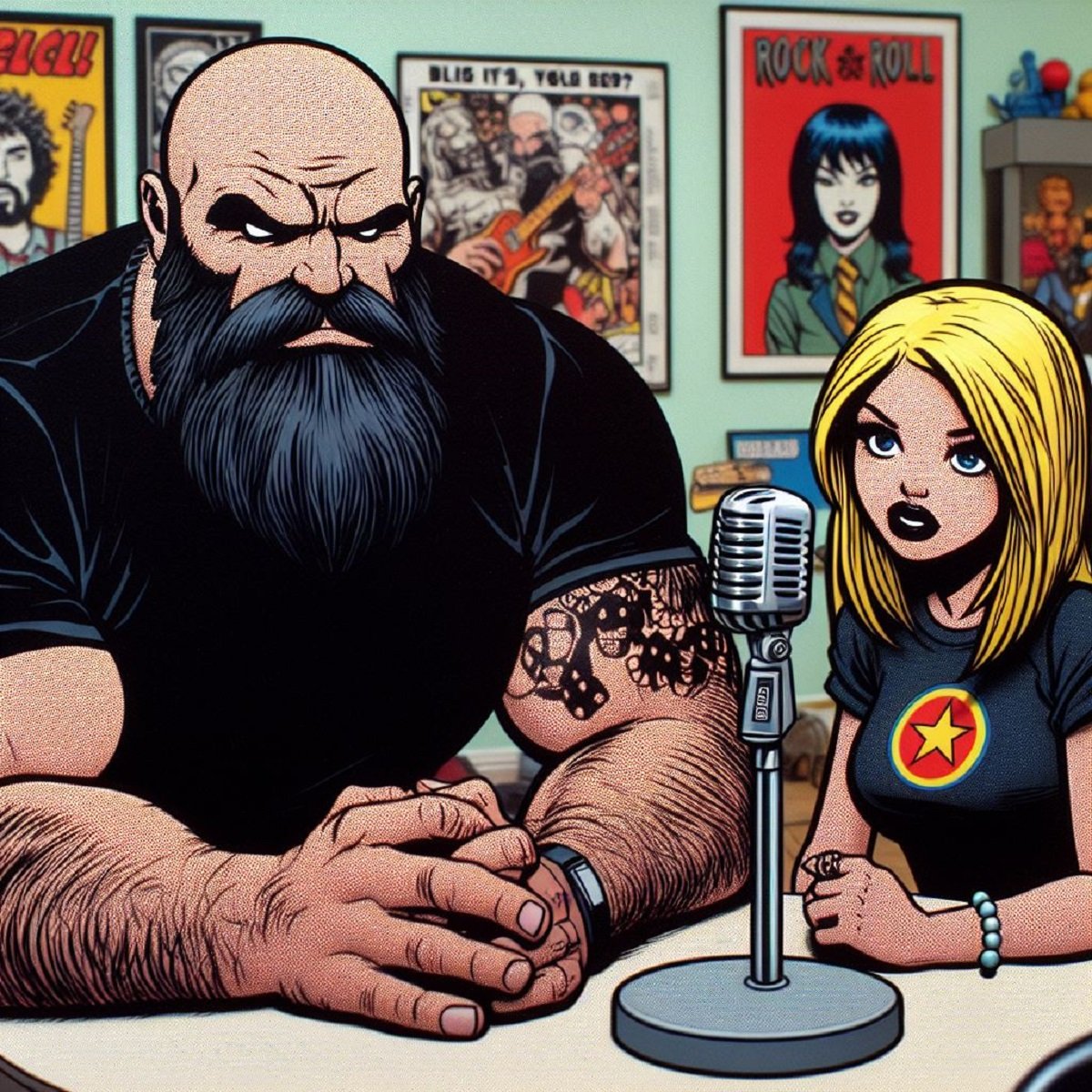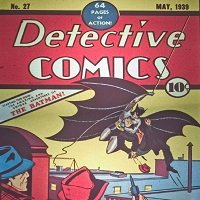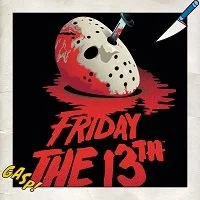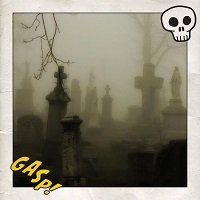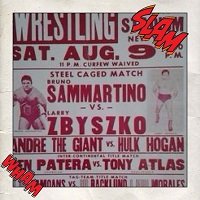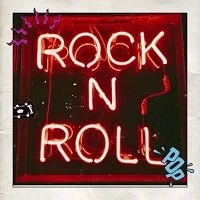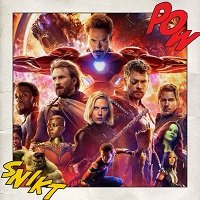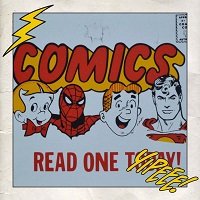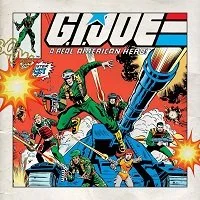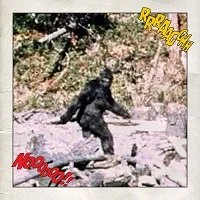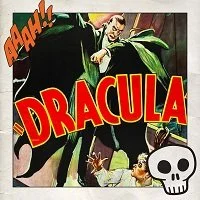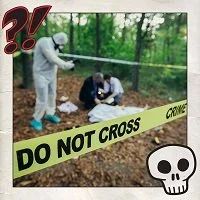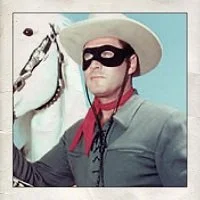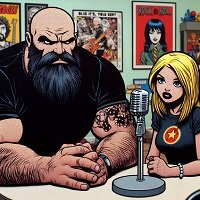Wrestling Observer Newsletter: Hall of Fame Ballot by Juan Nunez
By: Juan Nunez (Twitter)
This is my first year voting in the Wrestling Observer Hall Of Fame. The following are my wrestler votes, non-wrestler votes, and some non-votes that I want to highlight.
Hayabusa
In an era filled with legendary Junior Heavyweight wrestlers in Japan that included Jushin Thunder Liger and Ultimo Dragon, both in the Wrestling Observer Hall Of Fame, Hayabusa might be the most influential of them all. Box office and star ratings can be a flawed metric of reach, quality, and overall importance. You don't know who or what will survive the test of time. Hayabusa's home promotion was FMW, which was a company that was much smaller than NJPW or AJPW during Hayabusa's peak years. There aren't any Tokyo Dome cards or Budokan cards headlined by Hayabusa. He mostly existed in the hearts and minds of diehard wrestling fans of the era, but we are having this discussion because you could not create today's top matches without first having Hayabusa.
Every time that you see a 450 splash anywhere in the world, you are seeing Hayabusa's Firebird Splash. Any time you see a Falcon Arrow, you see the legacy of the man who popularized those moves, Hayabusa. Every time you see Seth Rollins take a WrestleMania crowd's breath away with a Phoenix Splash, you see Hayabusa's influence.
Beyond just moves, it's hard to put in-ring styles into words. Pro wrestling is an art form that can't be quantified into a mathematical formula. With that being said, it's hard to ignore how similar Hayabusa's matches 25 years ago were to the matches of current stars such as Will Ospreay, Hiromu Takahashi, and Kenny Omega. The way Hayabusa moved in the ring and the way his matches flowed would look right at home in the main event scene of any of today's companies. Outside of The Great Sasuke, who should also be in the Wrestling Observer Hall Of Fame, I'm hard-pressed to think of a non-Hall Of Famer from 20+ years ago who was as ahead of the curve as Hayabusa.
Bill Goldberg
The Rock. Steve Austin. "Hollywood" Hulk Hogan. Sting. Goldberg. These five men are the most prominent names of the biggest era in American professional wrestling on cable TV. They were watched by millions of fans every week. They are arguably the last real mainstream stars of American professional wrestling. Four out of the five are currently in the Wrestling Observer Hall Of Fame. Bill Goldberg should make it 5 for 5.
The big knock against Goldberg is a lack of longevity. His undisputed Hall of Fame worthy run was from his debut in June 1997 until Starrcade 1998. Almost exactly 18 months. That is a very short period in professional wrestling, but I have to ask why does longevity matter? The answer, of course, is that longevity is a measure of long term impact. Long term impact is exactly why Goldberg should be considered a Hall of Famer.
After terrible WCW booking, terrible WWE booking, years away from the spotlight, and returning to WWE with a run which probably should have ended years ago due to his age and head injuries, Bill Goldberg remains one of the very names in 2020 WWE that can have a predictable, measurable positive impact on viewership.(https://www.wrestlinginc.com/news/2020/02/goldberg-brings-big-ratings-boost-for-wwe-smackdown-return-666353/)
See Karl's uncool WWE column for why 22 years removed from Bill Goldberg's peak in popularity is a noteworthy achievement. If that's not lasting long term impact, I don't know what is.
C.M. Punk
It's very easy to knock C.M. Punk in 2020. He had an embarrassing UFC run as an MMA fighter that exposed his total lack of high-level combat sports ability to the world. After years of being a symbol of anti-WWE rebellion, he returned to a corporate WWE pundit role on Fox Sport, possibly the least cool job on earth. It would be very easy to dismiss him as just a guy who became a top name via luck, but that would be an extremely incomplete picture of one of the most influential wrestlers of the modern era.
The 2000's American independent wrestling scene is where the current top-level professional was born. It's where Wrestling Observer Hall of Fame careers such as A.J. Styles, and Daniel Bryan initially made their name. It's where greatly under-appreciated names like Paul London, and Doug Williams broke new ground by pulling influences from other parts of the world to create a hybrid style of wrestling, which has become the standard today.
In this scene, entering the building to AFI's Miseria Cantare (https://www.youtube.com/watch?v=9EcMH1FTOx0), leading The Second City Saints, preaching the ways of Straight Edge, C.M. Punk was a king. At a time and place that greatly emphasized "work rate" above all else, C.M. Punk stood out by being a well developed, highly effective heel. He was right, and the fans hated him for it. C.M. Punk was also a very good in-ring wrestler. He wrestled a highly acclaimed Iron Man match against Chris Hero February 28, 2004 in WXW, an Observer 5 star match against Samoa Joe October 16, 2004 in Ring Of Honor, and a 4 1/2 star match against Austin Ares June 18, 2005 in Ring Of Honor. C.M. Punk was not the best in-ring wrestler in this period, but in a scene that was deep with cutting edge and future superstar in-ring talent, C.M. Punk more than held his own with the best.
C.M. Punk's WWE run was an up and down one, with critically acclaimed peaks and valleys of irrelevance. This is probably best summed up by the fact that at the time that he cut his infamous "pipe bomb" promo, C.M. Punk was the leader of the New Nexus. Not even the flash in the pan, Nexus, people might sort-of remember, the reboot. Punk was not cut from the WWE cloth. He was not a bodybuilder guy, and he wasn't a world-class athlete. You would be hard-pressed to find a WWE superstar of note who was less of a Vince McMahon guy than C.M. Punk. With that being said, he managed to swim upstream enough to have one of the most impressive resumes in WWE of the 2000's-early 2010's. He held the WWE title for over a year. He received a rare WWE Wrestling Observer 5 Star match. He won Wrestling Observer Gimmick Of The Year, Feud of the year, and best interview twice each. Often in spite of WWE creative, he was consistently one of the most popular WWE wrestlers for over eight years.
Huracan Ramirez
Fans today may not realize that El Santo didn't start making movies until relatively late in his wrestling career. His first movie, Santo Contra Cerebro Del Mal (Santo Against the Brain of Evil), was released in 1961. Twenty-seven years after his professional wrestling debut and 19 years after adopting the name of El Santo. Before El Santo in movies, Mexico already had an established Lucha Libre movie tradition with the familiar formula of a masked wrestler/vigilante taking on organized crime. What was the film that popularized that formula? Huracan Ramirez, released February 26, 1952.
It's important to note that Huracan Ramirez, the character is not just one man. In the first few movies, Huracan was played by actor David Silva. The same year that the first movie came out, wrestler Daniel García Arteaga, who was working under the name Chico Garcia, was given the role of Huracan Ramirez in professional wrestling. He is the man who's Hall of Fame worthiness is in question. He wrestled under the mask for over 30 years.
Mexican wrestlers of this era are a considerable disadvantage when it comes to Hall of Fame voting because of a lack of televised footage and somewhat incomplete results records. By the available metrics that we do have, Huracan Ramirez was a Hall of Fame worthy wrestler. He held top titles. He had longevity. He has the reputation of being one of the best in-ring wrestlers in Mexico in the 1960s. The film series produced a total of 9 movies, and his mask remains one of the most iconic Lucha Libre masks in Mexico to this day, despite no one else coming close to his level of popularity with the Huracan Ramirez name since retiring in 1987. He did lack a legendary hair or mask match, possibly due to the rights of the Huracan Ramirez character, but he still won a decent amount of B level masks.
I'm sure that someone will argue that the Huracan Ramirez was more important than the wrestler, but we aren't voting in a La Sombra Vengadora, whose movies were just as popular in the 1950s and 1960s.
Meiko Satomura
Meiko Satomura was 20 years old in that match against Aja Kong in 1999. It's highly subjective, but I think that's the best match anywhere from 1999. You can watch yourselves and make up your mind. In the 21 years that followed, Meiko Satomura has never stopped wrestling matches of that quality every single year. I watched her have a great match with Kagetsu in February 2020. Entire Hall of Fame careers have come and gone in the time Meiko Satomura has been in wrestling, and on a match in-match out basis, she's as good if not outright better than almost any of them.
American fans noticed Meiko when she took part in WWE's Mae Young Classic tournament in 2018, but why isn't she recognized more? Because the majority of Japanese women's wrestling that gets attention is about five years from 1990 to 1995 in AJW. A period that is particularly obscure to most fans today is the 2000s because in the first half of the decade, the Japanese womens wrestling scene nearly died. Why that was is a long story, but it does mean that a lot of Meiko Satomura's wrestling career is not accessible outside of a very niche fanbase. That will be a big negative for some voters. Still, as one of the few familiar with her work, I can assure you that Meiko Satomura was in the ballpark of names such as Kurt Angle, Chris Benoit, and Bryan Danielson from that period that had a significantly larger audience. The difference between them and her is that their scene wasn't on life support at the time.
I'm glad Meiko is getting some recognition, and I hope she's inducted. I can think of a lot of other Japanese women wrestlers that fall outside that five-year AJW window that also deserver to be in, such as Nanae Takahashi, Maki Ueda, Yumi Ikeshita, Mariko Akagi, Mariko Yoshida, The Dynamite Girls, Mimi Hagiwara, Mayumi Ozaki, Ayako Hamada, and more.
Sgt. Slaughter
If millions of non-wrestling fans know a professional wrestler, that should be enough to get into a Hall of Fame. That makes you exceptional in my eyes. Granted, the 1980s were a long time ago. Most people under 30 years old don't know much about G.I. Joe outside of the underperforming movie franchise. Sgt. Slaughter is not mainstream today. But if you are in your mid 40s to mid 50s and you remember watching DIC syndicated cartoons before cable TV was in every home, you remember buying comics at the newspaper stand, and you remember toys like Micro Machines, there's at least a decent chance you have a vague memory of Sgt. Slaughter. That's still a lot of people.
One could point to Slaughter's drawing power in the early 1980s as a positive for his case. I'm sure he pops up in a lot of the Ultimate Pro Wrestling History Timeline results. One could point to his very unique and memorable promo style as being something that has survived the test of time. One could also point to his excellent longevity in the business. But I think the thing that pushes him over the edge is that he was an ambassador for professional wrestling. His ambassador status isn't without controversy. See Karl's article about Sgt. Slaughter last year. His stolen valor is problematic, but the impact of that problem is the eye of the beholder. I don't think it will ever really hurt his legacy because most people dismiss it as just standard old school kayfabe. It's dumb, but the old-man is probably just trying not to crush people's childhoods.
If you excluded Sgt. Slaughter from a book about American professional wrestling in the mainstream, would that book feel complete to you?
Satoshi Kojima & Hiroyoshi Tenzan
Tenzan is probably the greatest tag team wrestler in New Japan history. On the list of most combined IWGP tag team title defenses, Tenzan is half of both the first-place teams with Masahiro Chono and Satoshi Kojima. Hiroyoshi Tenzan and Keiji Muto vs Genichiro Tenryu and Shiro Koshinaka from October 18, 1998 is one of the best tag matches of its era.
Outside of his excellent tag team run, Satoshi Kojima is in the conversation for being the best in the world in the first half of the 2000s. Being a stabilizing force at the top of the cards of both New Japan and All Japan when both companies were in deep trouble.
Two Hall of Fame worthy workhorses. As a combined package of their overall careers, including tag teams and singles, I think they are Hall of Fame worthy.
Los Brazos (Brazo de Oro & Brazo de Plata & El Brazo)
The only reason why Los Brazos aren't slam dunk Hall of Famers is because of two biases by English speaking fans.
First, wrestling fans outside of Mexico don't know about UWA. The company has been dead for over 25 years. A lot of American wrestlers worked UWA, but it's not something they are asked about. No one is asking Chris Jericho about El Toreo de Cuatro in 1993. Fans don't appreciate the fact that there was an arena packed with anything between 5,000 and 18,000 fans on a weekly basis. Fans don't appreciate that UWA wasn't EMLL's minor league during it's peak. It was it's equal. El Santo didn't retire in EMLL. He retired in UWA. It might be difficult to get the necessary votes for wrestlers who had peak years outside of CMLL/EMLL even if they were more prominent stars than the EMLL guys of their era.
Second, "Super Porky" was primarily a comedy wrestler late in his career, and comedy wrestling is viewed as a sin by "serious professional wrestling fans." It doesn't matter if Porky was hugely over for decades. The image of the old guy who was a serious heart attack hazard will be a hard-sell for some.
Tickets sold, longevity, legendary matches, and lasting legacy. Los Brazos meet every possible metric for "legendary" in Mexico.
Tully Blanchard & Arn Anderson w/J.J. Dillon
How have these three not been inducted years ago? Your guess is as good as mine. If you're reading this, you don't need me to explain to you why the best Horsemen not named Ric Flair are Hall of Fame worthy.
Rick & Scott Steiner
Like Tully, Arn, and J.J., I feel like if you are reading this, you don't need me to explain to you why the best American tag team of the 1990s should be in the Wrestling Observer Hall of Fame.
Scott's memorable singles career should push anyone who happens to be on the edge about voting for the Steiner Brothers over the edge as well.
Five non-wrestlers:
* Jim Johnston - An obvious choice. Music is such a huge part of WWE's overall production. His impact on the company and the rest of the industry try to emulate WWE's production can not be overstated.
* Tony Schiavone - If the worst thing someone can say about your work is that you weren't 100% invested in 1999-2000 WCW, you did a pretty good job. Tony Schiavone is not a "movez" announcer. He's not going to tell you about intricate details of a particular armbar variation, but he does a great job at everything else that you could ask for in a TV wrestling announcer. He has a unique and memorable voice. No one is going to confuse Tony Schiavone for someone else. He does all he can to put over the product over. I don't find him overbearing. He's been an announcer at a national level for many years. Overall, I've always enjoyed his work, and I'm glad that AEW has changed people's minds about him.
* Ted Turner - You couldn't write the history of the last 35 years of professional wrestling without mentioning Ted Turner multiple times. He needs to go in.
* Dave Brown - This is a vote mostly based on reputation. I've seen my fair share of Memphis Wrestling shows, but that can only take me so far. I didn't grow up in that era and that area. I enjoy Lance Russell and Dave Brown, but people that grew up with Memphis Wrestling love Lance Russell and Dave Brown. I don't think I've heard a podcast about Memphis that didn't at least mention them in passing. That carries a lot of weight with me.
* Don Owen - Easily one of the longest-running promoters in professional history. That's a big deal.
Interesting non-votes:
* Caristico - I'll probably vote for him eventually. Right now, I'm on the fence. I think his peak was fantastic, and even if he's not the top wrestler in Mexico right now, he's still very good. I hope people take notice that he recovered his career post-WWE. I think he's just missing like another 5 quality years at his current level to really put his overall longevity over the top. He's a guy that's hurt by being on the ballot too early in his career.
* Kyoko Inoue - She's not a slam dunk for me because I saw her wrestle after 1997. She's still active today, and she's still a quality professional wrestler. But the athletic marvel that battled Manami Toyota and Aja Kong in the early 1990s is not what she was most of her career. She's also hurt a bit by the fact that Japanese womens wrestling has bigger stars and higher quality careers that aren't in this conversation yet.
* Edge - I'll probably vote for her in the future. He's one of the best of the 2000s and will probably stay on the ballot for many years to come. Right now, I'm not thinking too hard about Edge.
* Randy Orton - His specialness is purely based on the WWE hype machine. He's not as big of a star as John Cena or Batista. He's not as great of a promo or worker as Edge or CM Punk. He's been around forever and yet I don't really feel his influence on the current generation of wrestler. If you removed Randy Orton from history, you'd miss maybe a handful of very good matches and angles over almost 20 years. That's not enough.
* Ultimate Warrior - I will not vote for him. He was a massive star, but he also did an incredible amount of damage to professional wrestling. The steroid scandal of the early 1990s? That wasn't just Hulk Hogan. Viral videos of his speech at UCONN featuring anti-LGBT ranting? Overall, no matter how much WWE wants to rewrite history, he's a net negative.
* Matt & Jeff Hardy - I'm on the fence. On the one hand, I think they are an influential team. We saw a fair share of Hardy Boys clones over the years. As singles stars, they had interesting careers, but in a historical sense, I don't think they are great enough at any one thing to really be hall of fame worthy.
* Rick Martel - I'm on the fence because of my ignorance on this one. Everything I've seen of Rick Martel ever has been great. I want to dive deeper into his tag team run with Tony Garea, is work in Australia, and his work in Puerto Rico.
* Sangre Chicana - I'll probably vote for him in the future. He was one of the top heels in Mexico for many years. He's not a slam dunk due to some bad in-ring years towards the end of his run. I need to revisit him before I vote yes.
* Stephanie McMahon - Strong "probably not" from me. I think she eventually became an excellent promo, and a very effective heel. She's one of the most recognizable faces of the past 20 years in American Wrestling, but I have a hard time seeing her long term impact. If you remove Stephanie from history, you aren't going to miss any great matches or storylines. You'll miss some good promos but not gaming changing promos. A lot of other non-wrestlers should be in before her.
* June Byers - I'm not voting for her. From the footage we have, she was a very good wrestler. But in her time, she was outshined by Mildred Burke. The shoot match between Burke and Byers, and the relationship with Billie Wolfe are not a positive for anyone involved. She didn't have a lasting impact on top either. I would rather see her votes to go someone like Leilani Kai instead.
Juan Nunez is a valued contributor to the When It Was Cool website and is one of our featured and trusted contributors to the Ultimate History of Pro Wrestling Zone. Karl Stern (DragonKingKarl) also discusses the Wrestling Observer Newsletter Hall of Fame in the free podcast special below.
Subscribe, rate, and review the DragonKingKarl Classic Wrestling Podcast on iTunes / Apple Podcasts - https://podcasts.apple.com/us/podcast/dragonkingkarl-classic-wrestling-podcast/id1530648389
If you found this article interesting consider becoming a Patreon supporter. That is how When It Was Cool keeps our website and podcasts online, plus you get lots of bonus content including extra and extended podcasts, articles, digital comics, ebooks, and much more. Check out our Patreon Page to see what's up!
If you don't want to use Patreon but still want to support When It Was Cool then how about a one time $5 PayPal donation? Thank you!
